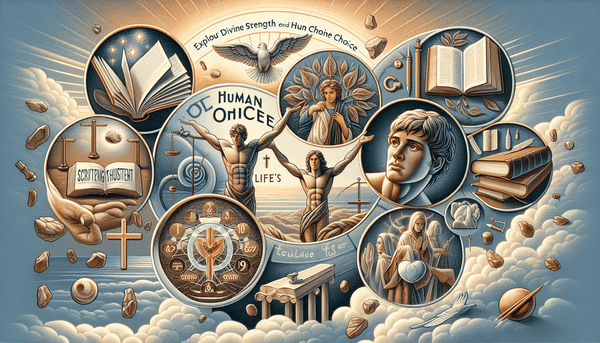The Parable of the Great Banquet and the Nature of Excuses
In Luke 14:18-20, Jesus shares a parable that reflects on the nature of excuses. The invited guests to the great banquet offer various reasons to decline the host's invitation, from tending to new possessions to attending to family matters. These excuses, while seemingly valid on the surface, represent deeper spiritual issues: the prioritization of worldly distractions over divine summons. Similarly, in the book of Exodus, Moses initially makes excuses when called by God to lead the Israelites out of Egypt, citing his own insecurity and perceived inadequacy. However, God’s response to Moses’ reluctance, as described in Exodus 3-4, underscores that His strength is perfected in our weaknesses. These passages teach us about the importance of being honest and accountable, urging us to forgo excuses that might hinder our relationship with God, and instead, to trust in His guidance and the empowerment He provides for every task we are called to undertake.
Mindfulness: Protecting Your Heart and Mind
The Bible emphasizes the importance of vigilance over our hearts and minds. In Matthew 6:22-23, Jesus speaks of the 'eye' as the lamp of the body, suggesting that our perceptions and thoughts have the power to fill us with light or darkness. Proverbs 4:23 advises us to 'above all else, guard your heart, for everything you do flows from it.' By being mindful of what we allow to influence us—through our eyes and ears—we protect our spiritual well-being. For further guidance on this topic, consider exploring how Biblical wisdom can help us cope with life's challenges. The apostle Paul, in Philippians 4:8, further instructs believers to focus on whatever is true, noble, right, pure, lovely, and admirable. These verses encourage us to cultivate a disciplined mind, one that consciously lets go of negative thoughts and embraces those that align with God's righteousness.
Conclusion
Throughout its pages, the Bible consistently provides guidance for living a life in harmony with divine principles. From the parables of Jesus to the commandments given to Moses, from the Psalms of repentance to the Proverbs of wisdom, Scripture lays out a roadmap for overcoming excuses, embracing mercy, and maintaining mindfulness. As we seek to apply these teachings in our lives, we are reminded to reflect on our own actions, to approach God with a humble and contrite heart, and to guard against the influences that can lead us astray. In doing so, we enter into a deeper understanding and a closer relationship with the Divine, guided by the eternal truths that have been passed down through generations.
FAQ
Q: What does it mean to have a contrite heart?
A: Having a contrite heart means to have a deep sense of remorse and repentance for one's sins, accompanied by humility and a desire to seek forgiveness and turn away from wrongdoing, as described in Psalm 51:17.
Q: How do I ask for mercy?
A: To ask for mercy, approach the Lord with a humble and contrite heart, confess your sins, and ask for forgiveness, trusting in God's mercy as promised in scriptures like 1 John 1:9.
Q: What does the Bible say about excuses?
A: The Bible often presents excuses as obstacles to obedience and faithfulness. In Luke 14:18-20, Jesus’ parable illustrates the consequences of making excuses, and in Exodus 3-4, Moses' initial hesitation is overcome with God's reassurance and empowerment.
Q: What does 'The eye is the lamp of the body' mean?
A: In Matthew 6:22-23, the phrase 'The eye is the lamp of the body' means that our perception can influence our entire being. Healthy perception leads to a life filled with light, or goodness, while poor perception can lead to darkness, or moral and spiritual blindness.






